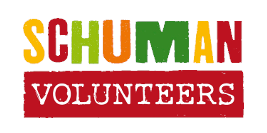From The European Union perspective, multilingualism is an important aspect. Languages are more than ways of communication, they render the countries and their cultures, straighten intercultural understanding and they play an important role in enhancing employability and mobility. And connected to this E.U has a series of initiatives which aim to encourage and facilitate multilingualism and learning languages process. Moreover, “The European Commission is working together with national governments to meet an ambitious goal – for all citizens to learn at least two foreign languages and to begin learning foreign languages at an early age.” And that’s the reason why a few strategies and policies were already implemented. Among this initiatives there is the Erasmus+ Program which offers opportunities to young people to hone their language skills by engaging in learning and training abroad, and by supporting vocational and educational mobility.
This is how E.U sees the idea of multilingualism and I totally agree with the idea that knowing another language than your mother tongue, helps you bond much faster with the people from another culture or the opposite, the language can very easy become a barrier difficult to cross when it comes to better knowing a country or a culture. And since I am in Poland I can relate to both of the situations
On one hand, as a French speaking person, this project is one of the contexts that shows me that knowing another language makes the things easier and more enjoyable when it comes to daily communication or simple sharing of opinions and it definitely facilitates the cultural exchange and enriches the relationship.
On the other hand, not knowing the language of the hosting country where I am suppose to spend almost one year sounded even from the very beginning like an adventure from the linguistic point of view, and it definitely is. As a flashback I still remember the first day in Warsaw when, on the way to the flat I saw an advertisement with the word “Szczęście” which for me was impossible to pronounce and once I arrived home I looked for the word and then I said to myself ‘happiness is difficult to pronounce in Polish.”- I didn’t change my mind yet
Instead I started to learn the language with all the enthusiasm that any beginner has and after I finished the course for the very first level and my first two months in Poland passed I understood that I am playing the role of Don Quijote here and I decided that I am not going to learn any grammar rule but I will keep exposing myself to the language and I will stick to the basics. So I shortly arrived in the point of looking for a lingua franca than trying to understand the prices at the shop and I had the small daily victories like asking for a bread, or understanding simple directions while searching for an address or simply introducing myself in front of the students.
When it comes to poles and English as a language of communication, I would say that most of those I met were afraid of talking in English, without meaning that they don’t know it. I perceived rather like a fear of making mistakes than a lack of knowledge and if I think about me trying to talk in Polish I totally understand them. And my research of a commune language to communicate ended faster than I thought. What I do is that I listen more and more and at the moment Ii can understand the context when someone is talking and if it’s slow enough I might catch some sentences in basic communication.
So, if you would ask me how is it to live In a country without understanding the language, I would say it’s challenging and tiring, but still doable.
